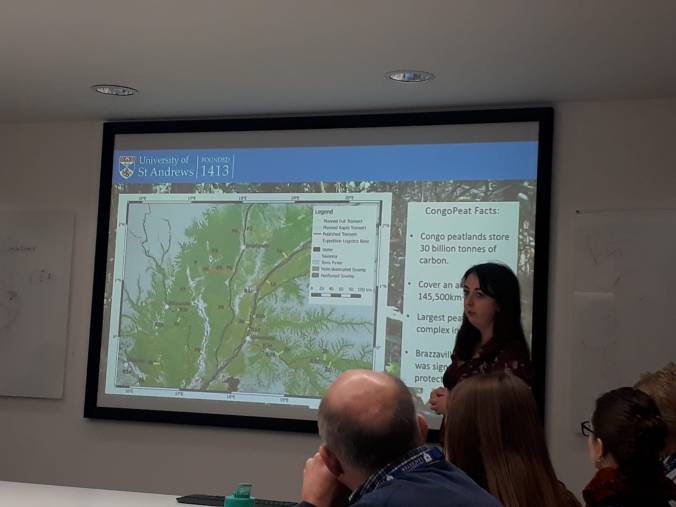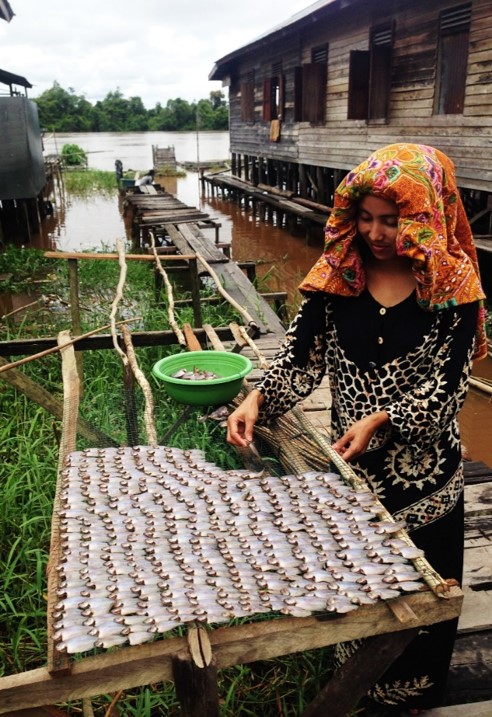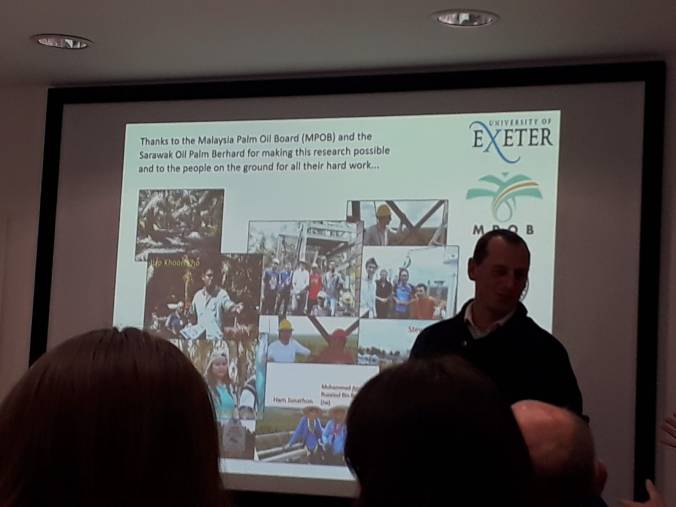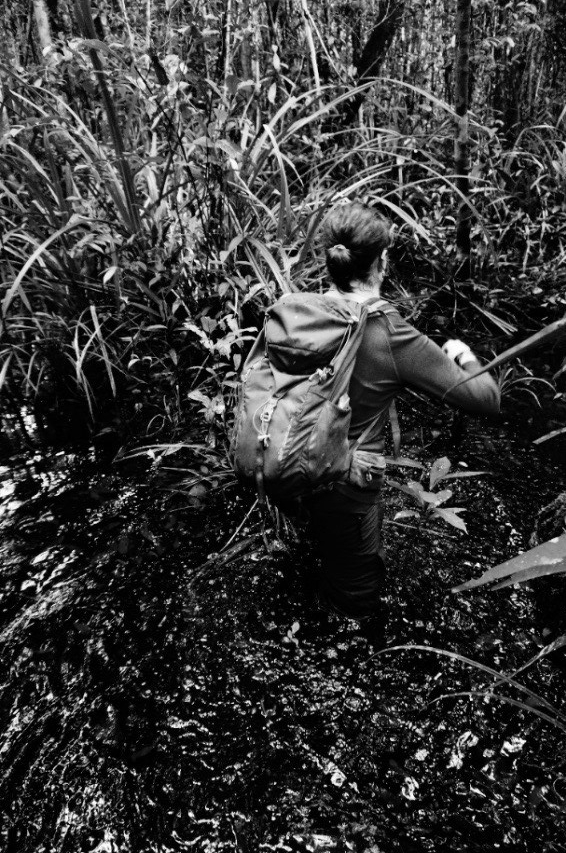Here is a short report on the latest meeting of the UK TPWG, written by Lydia Cole.
On 30th January, Prof Sue Page and Dr Sara Thornton hosted a meeting of the UK Tropical Peatland Working Group (UK TPWG). An assortment of researchers gathered for one day at the University of Leicester, to present their work and discuss how the group can be more effective in the realm of tropical peatland science and responsible management. Attendees successfully navigated the UK rail network from as far as Exeter on the south coast to St Andrews on the east coast of Scotland. The most junior member of the group had a baptism of fire as the meeting marked the first day of his PhD – well done, Abdul!

Donna Hawthorne presenting on her palaeoecological component of the mega-CongoPeat project. (Credit: Lydia Cole.)
The day started with brief introductions from everyone present, with expertise ranging from palaeoecology to political economy, with a number of biogeochemists and modellers in the mix. Fifteen people gave a summary of their current work in a short presentation. The Congo Basin team started the proceedings with a lowdown on the state of knowledge on contemporary greenhouse gas emissions (GHG) from these Central African peatlands (Nick Girkin), on their development history (Donna Hawthorne) and past and present spatial patterning (George Biddulph). The distribution of carbon across Mexico’s wetlands was then showcased (Sofie Sjogersten), followed by insights into the emissions resulting from agriculturally important (and very deep!) peatlands in Uganda (Jenny Farmer). Several presenters gave reports on the exciting new projects they are just embarking on, e.g. TroPeaCC (Angela Gallego-Sala), or the first findings gathered after recently returning from field campaigns, e.g. the Peru peatlands crew (Anna Macphie, Adam Hastie, Charlotte Wheeler and Lydia Cole). Katy Roucoux gave a neat overview of the multiple different projects happening in the peatlands of the Pastaza-Marañón Foreland Basin in the Peruvian Amazon, showing a diversity of studies ranging from the modelling of carbon to the mapping of livelihoods, and a variety of palaeo- and neo-ecological studies. The pantropical circle continued on to Southeast Asia’s peatlands, where we learnt about the importance of peatland fish for rural livelihoods, biodiversity conservation and much more (Sara Thornton); about exciting, and horrifying new measurements of the GHG emissions during the initial years of oil palm plantation establishment on Sarawakian peatlands (Jon McCalmont) and the pattern of biomass accumulation of these palms on organic-rich soils (Kennedy Lewis); finishing with a round-up of potential ways of reducing GHG emissions from peatland agriculture (Yit Arn Teh), such as wise use of fertilisers.

Sara Thornton told of the importance of fishing for rural communities living in peatland areas in Central Kalimantan, Indonesia. (Credit: Sara Thornton.)
An engaged discussion followed each set of talks, resulting in as many unanswered questions as those we felt able to provide reasoned responses to. Thus the UK TPWG, along with an extensive body of invaluable collaborators across the Tropics, is tasked with finding answers to these important knowledge gaps we identified (and the funding to match!). Which wetland ecosystems of the Peruvian Amazon are peat-forming and why? Where is the labile carbon from the peatlands of the Congo Basin disappearing to? How can we reduce the impact of cultivating Uganda’s peatlands? And crucially, how do we work across disciplines, perhaps even interdisciplinarily, to tackle the complex challenge of tropical peatland conservation and restoration?

Jon McCalmont thanking the many people involved in his project in Sarawak, Malaysian Borneo. (Credit: Lydia Cole.)
If you have answers, questions or are interested in engaging with the group, please get in touch – uktropicalpeat@gmail.com.



